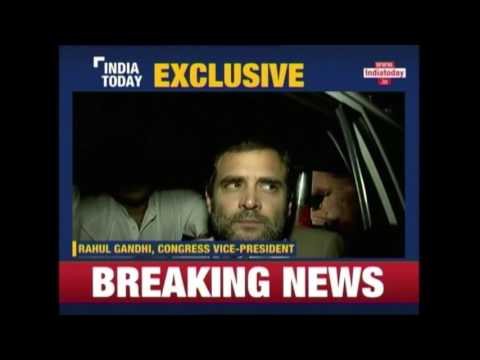SOURCE:
https://www.youtube.com/watch?v=jlulo4k-IN0
OROP
: SUICIDE - IT IS "THE BEGINNING"
NOT THE END OF BEGINNING
Up next
Autoplay When autoplay is enabled, a suggested video will automatically play next.
https://www.youtube.com/watch?v=jlulo4k-IN0
OROP
: SUICIDE - IT IS "THE BEGINNING"
NOT THE END OF BEGINNING
Up next
Autoplay When autoplay is enabled, a suggested video will automatically play next.
Up next
Up next
- BJP Misleading Nation Over OROP : Arvind Kejriwal Explosive Interview | Part 1 - Duration: 39:16. India Today289 views
- Video removed.
- Video removed.
- Video removed.
- To The Point : Modi Govt Unsuccessful In Implementation Of OROP ? - Duration: 39:36. India Today178 views
- Video removed.
- Rahul Gandhi accuses PM Narendra Modi of lying, says defence veterans not getting OROP - Duration: 31:38. NewsX126 views
- Video removed.
- Video removed.
- Video removed.
- Video removed.
- Amit Shah, Most Hated Creature : Arvind Kejriwal Explosive Interview | Part 2 - Duration: 28:58. India Today364 views
- Video removed.
- OROP: UPA blocked One Rank One Pension for 10 years, Rahul Gandhi ignored S.O.S letter - Duration: 8:38. NewsX62 views
- Video removed.
- Rahul Gandhi stopped from reaching Jantar Mantar regarding OROP issue - Duration: 20:34. NewsNationTV61 views
- Video removed.
- Video removed.
- OROP Suicide : Politicians Blocked And Detained From Meeting Kin Of Dead Jawan - Duration: 43:29. India Today127 views
- Video removed.
- OROP Suicide : Political Fight Over Martyr Status Accorded To Ex-Jawan Ram Kishan - Duration: 30:59. India Today125 views
- Video removed.
- Exclusive : Arvind Kejriwal's Most Fierce Attack On PM Modi & BJP - Duration: 22:26. India Today208 views
- Video removed.
- Video removed.
- Government has not given OROP; they should fulfill their promise, says Rahul Gandhi - Duration: 9:57. ABP NEWS1,007 views
- Video removed.
- OROP Issue: Youth Congress protests against Centre government for detaining Rahul Gandhi - Duration: 16:21. NewsX17 views
- Video removed.
- #OROPSuicide : Rahul Gandhi To Attend Funeral Of Veteran Jawan Ram Kishan - Duration: 17:14. India Today327 views
- Video removed.
- PM Modi Lying About Implementation Of OROP : Arvind Kejriwal - Duration: 13:54. India Today144 views
- Video removed.
- Video removed.
- Kejriwal Announces 1 Crore Compensation For Family Of Ram Kishan - Duration: 23:16. India Today587 views
- Video removed.
- OROP Suicide: Ram Kishan Grewal Suicide Mystery is Still Unsolved - Duration: 9:05. IndiaTV882 views
- Video removed.
- Video removed.
- Newsroom : What Drove Ex- Serviceman Ram Kishan To Suicide ? - Duration: 26:35. India Today144 views
- Video removed.
- OROP Suicide : Kejriwal Attacks Modi Govt, Says Govt Run By Goons - Duration: 20:47. India Today2,624 views
- Video removed.
- Video removed.
- Video removed.
- Newsroom : Political Slugfest Over Suicide Of Ex-Jawan Continues - Duration: 29:14. India Today5 views
- Video removed.
- Video removed.
- Jan Man: Pollution levels recorded 6 times more than usual in Delhi - Duration: 9:01. ABP NEWS728 views
- Video removed.
- Watch: "Have You No Shame," Rahul Gandhi Asks Cops In Row Over Veteran - Duration: 2:16. NDTV12,586 views
- Video removed.
- Jan Man: Former Jawan Ram Kishan commits suicide; Political chaos in Delhi - Duration: 9:06. ABP NEWS1,560 views
- Video removed.
- 7@7 : Political Slugfest Over Martyrdom Status Of Deceased Ex-Jawan - Duration: 26:51. India Today7 views
- Video removed.
- Video removed.
- Video removed.
- #OROPSuicide : Rahul Gandhi Meets Army Veterans Over OROP Issue - Duration: 5:18. India Today116 views
- Video removed.
- OROP: Rajya Sabha MP Rajeev Chandrasekhar leaks letters, exposes Rahul Gandhi's OROP 'duplicity' - Duration: 15:10. NewsX76 views
- Video removed.









































